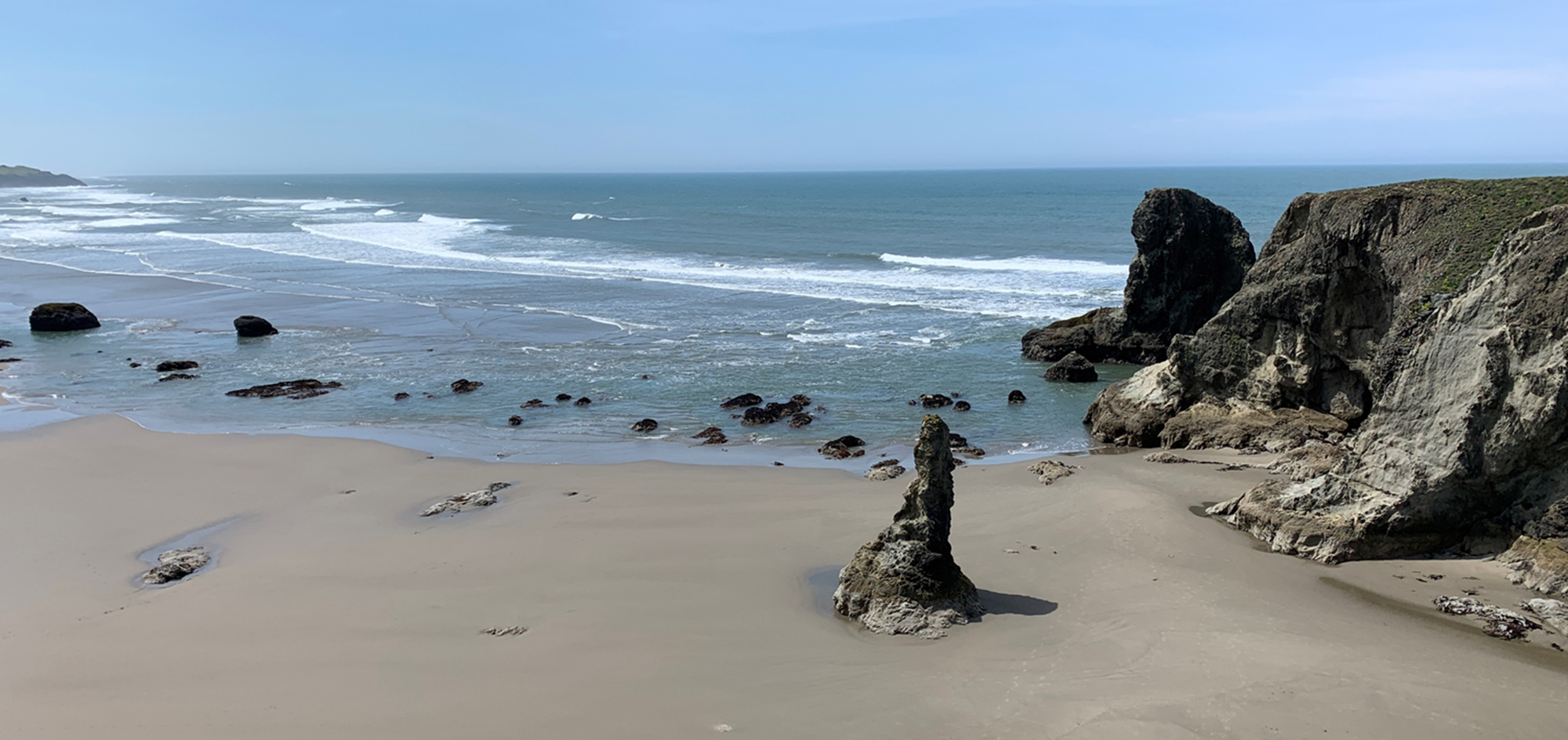Probably every Christian of my generation knows the inspirational poem “Footprints in the Sand.” For awhile it was everywhere. Posters and plaques, tea towels and key chains, Hallmark cards and coffee cups all told the story of the person walking along the seashore with “the Lord” (whoever that may be) at their side.
The walk on the shore is an image of the person’s life. Looking back, the person sees two sets of footprints, the walker’s and the Lord’s, but then notices the times, difficult times, when there is but one set of prints. The person questions the Lord as to why he seems to have left the walker alone in those tough times. The Lord replies, “When you saw only one set of footprints, it was then that I carried you.”
If you need a refresher you can read a version of the poem here. Well, at least one version. It turns out that several versions exist and those claiming original authorship have sued each other for the credit, and, I suppose, the royalties.
“Footprints” never did much for me, but I know it has been very reassuring and comforting for others. If you are a “Footprints” fan, you may want to quit reading now.
This past week has been a week of slogging through some hard words in the Psalter readings of the Daily Office. We’ve been in the 70s, and they can be discouraging. Psalms of personal or corporate lament, there are glimmers of hope in them, but mostly a lot of discouragement.
Over and over again they speak of times that are trying and of relief that seems far away. Psalm 77 is among the most discouraging:
In the day of my trouble I seek the Lord; in the night my hand is stretched out without wearying; my soul refuses to be comforted. When I remember God, I moan; when I meditate, my spirit faints. Psalm 77:2–3
Psalm 78 declares us to be a stubborn and rebellious generation.
Things are not good. We have brought calamity upon ourselves. There are no signs that God will act quickly on our behalf.
The footprints in the sand are mine alone. I falter and my strength fails. No one is carrying me. Doesn’t it seem that way sometimes? In fact, that is what the psalmist tells us. For long stretches of our walk, the lonely footprints in the sand are ours. They are mine. I recognize the gait and the shape of the toes.
The psalmist describes his “day of trouble.” In his sleepless nights his mind is wracked with questions to which he can find no answers:
- Will the Lord spurn forever, and never again be favorable?
- Has his steadfast love forever ceased?
- Are his promises at an end for all time?
- Has God forgotten to be gracious?
- Has he in anger shut up his compassion?
Leaving his anguished thoughts behind, the psalmist finally goes to the stories of God’s past faithfulness to find some hope for his present and future. He remembers the Exodus (Psalm 77:19–20):
Your way was through the sea,
your path through the great waters;
yet your footprints were unseen.
Footprints unseen.
It is not that the Lord was not with the people. The psalmist concludes, “You led your people like a flock by the hand of Moses and Aaron.” But they never saw the Lord’s footprints. They may have seen Moses’ or Aaron’s footprints, but just before they take to the sandy bed of the Red Sea the people express their stubborn rebellion against Moses and his brother. “Is it because there are no graves in Egypt that you have taken us away to die in the wilderness?” they ask. (Exodus 14:11)
Once more from Psalm 78. We are like those who did not trust Aaron and Moses, “a generation whose heart was not steadfast, whose spirit was not faithful to God.”
We must do more than put on our “Footprints” t-shirts when we set out for the promised land.
Of course, we have his strong promise, “I will never leave you or forsake you.” (Hebrews 13:5)
Still, we encounter days of trouble, often of our own stubborn and rebellious making. Sometimes his footprints are unseen.
Explaining and defending his ministry to a stubborn and rebellious congregation in Corinth, the Apostle Paul writes, “We are always of good courage …for we walk by faith, not by sight. Yes, we are of good courage. (2 Corinthians 5:6-8)
It is not that the eyes of faith are like a set of decoder lenses that let us see what is not there. Looking back, we may never see the footprints of one who carries us through our days of trouble. Looking forward, we do not see emergency lights leading us to the nearest exit. The eyes of faith give us courage to keep going, confident that our Great Jehovah will someday land us safe on Jordan’s side (to mix our Exodus images).
We keep walking even when there are no footprints in the sand.

